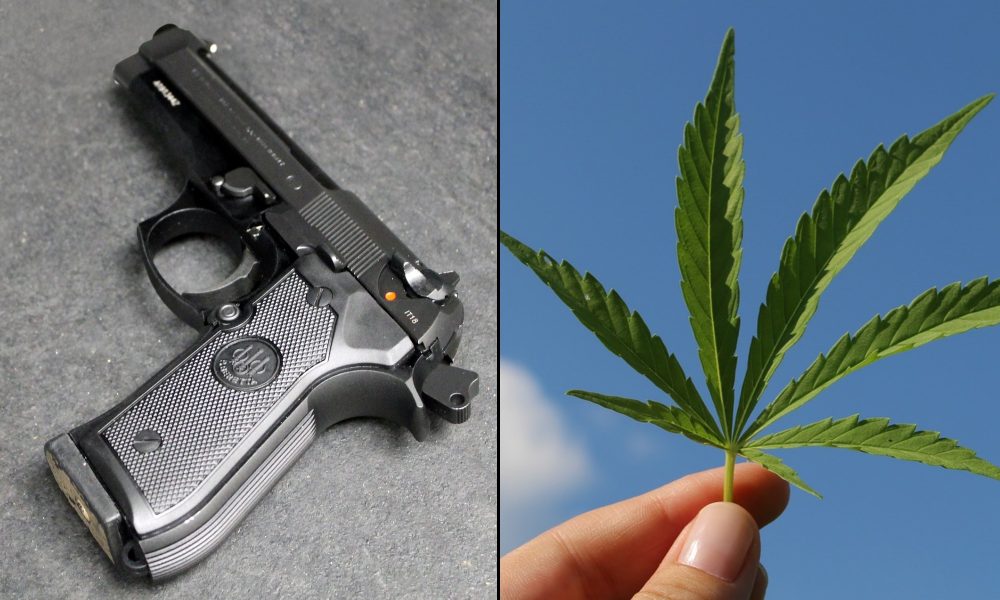“If they just simply have a medical marijuana card, one, we wouldn’t check that, but two, it wouldn’t prevent them from getting a license.”
By John Hult, South Dakota Searchlight
Sioux Falls lawyer Ryan Kolbeck typically doesn’t deal with legal questions about hunting licenses.
The criminal defense attorney did field multiple calls on the topic in the days following the November 8 election, however. They started coming in shortly after it became clear that South Dakota voters had voted to reject the legalization of recreational cannabis.
Each question had the same framing: Since federal law prohibits gun ownership by habitual marijuana users—or users of any substance federal classified as “illicit”—would they be able to obtain both a medical marijuana card and a hunting license in the state of South Dakota?
“You have to register with the state [to use medical marijuana], which is different from any other medication,” Kolbeck said. “People were wondering if the state of South Dakota could be trusted, basically.”
The callers had waited out the election, Kolbeck said, hoping a win for recreational marijuana would preclude them from applying for a medical marijuana card that would put their names on a state-held list.
The question was based more on speculation and suspicion of lawmakers than any official guidelines, Kolbeck said, but those suspicions aren’t especially uncommon in states with medical marijuana programs. The issue of hunting licenses comes up in online forums, and gun rights issues have bubbled over into state government action elsewhere.
In Minnesota, concerns over gun permits sparked the introduction of a bill that would have reclassified cannabis to allow medical users to own firearms.
In Oregon, the state pharmacy board re-classified the drug as schedule II, in part to clear a path for firearms permits.
The question of hunting license losses, or even a loss of gun rights, is “theoretical,” according to marijuana activist Matthew Schweich. Even so, Schweich is unsurprised to hear that the question arose in South Dakota.
“It’s really just a question of whether the [Bureau of Alcohol, Tobacco and Firearms] would try to get records from states on medical cannabis and use them to say that someone was dishonest on the forms,” said Schweich, who helped back the 2020 medical marijuana initiative and the failed 2022 recreational marijuana use measure. “At this point, I’m not aware of that ever happening.”
Obtaining a hunting license is different from purchasing a firearm or getting a firearms permit, of course. Different states have different rules on concealed carry permits that are separate from federal rules. Unlike Oregonians, for example, South Dakotans can carry firearms—concealed or otherwise—without a permit.
And in South Dakota, the use of medical cannabis does not prevent anyone from getting a hunting license.
“If they just simply have a medical marijuana card, one, we wouldn’t check that, but two, it wouldn’t prevent them from getting a license,” said John Kanta, a section chief for the Game, Fish & Parks (GF&P) Department.
There are things that could disqualify a person from a hunting license, though. Someone with more than $1,000 in unpaid child support, for example, would be ineligible, as would a felon.
But those disqualifying issues would only come up if the applicant brought them up, Kanta said. There are a series of boxes the applicant must check to confirm eligibility, with a catch-all box at the end of the process.
“There’s a statement they agree to to say that they are, in fact, eligible for the license,” Kanta said.
No one at the GF&P runs background checks to confirm the accuracy of the statement, though. Marijuana use wouldn’t cause trouble for a hunter unless a game officer caught someone shooting under the influence or otherwise violating hunting laws, Kanta said.
All of which means Kolbeck’s clients are in the clear if they decide to seek a medical marijuana card for chronic pain or another qualifying condition.
Ultimately, however, the mismatch between federal laws on marijuana and state laws that allow medical or recreational use—there are 38 states with one or both—is liable to remain a source for concerns about gun rights, Schweich said. If Congress took steps to reclassify the drug, those theoretical worries would evaporate.
“What we really need is federal reform,” Schweich said.
This story was first published by South Dakota Searchlight.
Federally Funded Study Shows Marijuana Legalization Is Not Associated With Increased Teen Use
Read the full article here

